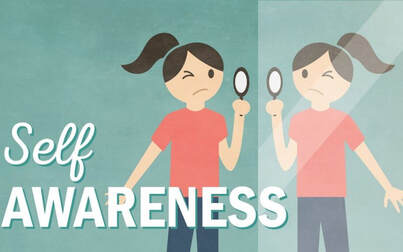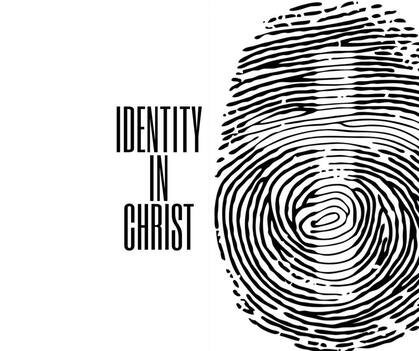|
by Paul Negrete From Self-Awareness to Christ-Awareness When speaking of emotional intelligence self-awareness is key. Here are three definitions of self-awareness. 1) “Self-awareness involves monitoring our stress, thoughts, emotions, and beliefs.” 2) “Self-awareness is the ability to see yourself clearly and objectively through reflection and introspection.” And finally, 3) “If you're self-aware, you always know how you feel, and you know how your emotions and your actions can affect the people around you.” Self-awareness can be seen as a kind of “emotional proprioception” - understanding where you are emotionally and physically in relation to the world around you. Life moves at such a rapid pace. Things change from moment to moment. It can be easy for us to lose our bearings from time to time. Stress and anxiety often hide undetected beneath the surface of a mindset that everything is under control; suddenly coming to light in the least expected moment and by the slightest of provocations. Another difficult emotional challenge can be understanding how some of our normal behaviors are unintentionally being misinterpreted causing others distress. Self-awareness, then, is the ability to take a personal inventory, to understand the state of our person in relation to the environmental, social, emotional, and spiritual stimulus that is impacting our lives, and to further understand how we, in turn, are affecting others. Self-awareness is a trait that is often found in people who exhibit qualities personified in transformative leadership models. Relational success can be directly linked with the ability to be self-aware. The difficulty lies in the fact that we are often overwhelmed with information that may be difficult to disaggregate and that is obscured by an individual’s personal perception. We may simply lack sufficient pieces of key details to be able to derive true understanding at the moment. To say that we should be self-aware is one thing, to practice it at all times is a completely different problem. Practices such as mindfulness attempt to tackle the difficulties found in addressing the need for self-awareness. “Mindfulness is… [a] systematic mental training that develops meta-awareness (self-awareness), an ability to effectively modulate one's behavior (self-regulation), and a positive relationship between self and other that transcends self-focused needs and increases prosocial characteristics (self-transcendence).” The theory of mindfulness is rooted in Zen Buddhism. Secular practitioners of this philosophy will use eastern meditation exercises that are focused on seeking “inner truth” or “stillness” through relaxation and breath training to enhance the state of mindfulness. In the United States, the practice of mindfulness was introduced in 1979 by Jon Kabit-Zinn in an effort to aid clinical patients with pain and stress management. As Christians, we are called to be mindful, or self-aware, in a way that is uniquely distinctive. Peter was pointedly admonished by Jesus for not being “mindful” of the things of God. Later Peter would write warning believers to be, “...mindful of the words which were spoken before by the holy prophets, and of the commandment of us, the apostles of the Lord and Savior…,” in the hope that we would not become negligent in looking for the return of Jesus. The call of many of the Biblical writers was to be aware of the attacks of Satan to lure us away from our hope in Jesus. The Bible is clear that we as humans will never be of ourselves fully self-aware. In the last of the seven churches of Revelation Jesus warns the people that they are unaware of their true spiritual condition stating, “...you say, ‘I am rich, have become wealthy, and have need of nothing’—and do not know that you are wretched, miserable, poor, blind, and naked….” The Psalmist asks God to help reveal the true condition of the heart. The Bible goes on to further share with us that most often what we need to be aware of, that which impacts us the most, has to do with a reality that can only be disclosed through the illumination of the Holy Spirit. One of the key aspects of the ministry of Jesus is to reveal the truth of our hearts. Essentially, for the Christian, the path towards self-awareness is actually a journey to Christ-awareness. The more we seek to know Jesus the more He reveals our true nature, our spiritual condition, and the purpose He has for our lives. When we seek to know ourselves through our own eyes, we may miss the greater understanding of the fullness of our identity in Christ. Regardless of whether or not our self-awareness is strong or weak, apart from God it will always be painfully incomplete and lacking in fulfillment in comparison to what it could be in Him. There is a God who can reveal even the secret things of ourselves and of the human condition. We should ask the Holy Spirit to help us to understand the mind of Jesus through the plan of redemption. It is in this effort that God can reveal the true-self to us. It is inevitable that there will be times when life becomes overwhelming. As much as we may try to keep everything straight and to be aware of all of our thoughts, feelings, and how we are impacting others, we are limited. We need help. My prayer is that in whatever condition or situation we may find ourselves, that we may always have the presence of mind to call out as David did, “Hear my cry, O God; Attend to my prayer. From the end of the earth I will cry to You, When my heart is overwhelmed; Lead me to the rock that is higher than I.” The greatest awareness you can ever attain is not of yourself but rather of God’s love for you. The more we seek Christ and desire to know Him, His gift to us in return is to reveal the most extraordinary truth about ourselves - our beginning, our present, our end, and our eternal destiny.
Bibliography 1https://www.psychologytoday.com/us/blog/click-here-happiness/201903/what-is-self-awareness-and-how-do-you-get-it 2https://positivepsychology.com/self-awareness-matters-how-you-can-be-more-self-aware/ 3https://www.mindtools.com/pages/article/newLDR_45.htm 4https://www.frontiersin.org/articles/10.3389/fnhum.2012.00296/full 5https://www.theguardian.com/lifeandstyle/2017/oct/22/mindfulness-jon-kabat-zinn-depression-trump-grenfell 6 https://onlinelibrary.wiley.com/doi/abs/10.1093/clipsy.bpg016 7 Matthew 16:23; Mark 8:33 (NKJV) 8 2 Peter 3:1-9 (NKJV) 9 1 Peter 5:8 (NKJV) 10 Jeremiah 17:9 (NKJV) 11 Revelation 3:17 (NKJV) 12 Psalm 139:23-24 (NKJV) 13 Ephesians 6:12 (NKJV) 14 Luke 2:34-35 (NKJV) 15 Matthew 6:33; Jeremiah 29:11; 1 Peter 1:29; John 16:7-15 (NKJV) 16 Isaiah 55:8-9 (NKJV) 17 Daniel 2:19-23 (NKJV) 18 Phillipians 2:5-11 (NKJV) 19 Psalm 61:1-2 (NKJV) 20 Ephesians 3:14-21 (NKJV)
0 Comments
Your comment will be posted after it is approved.
Leave a Reply. |
Archives |

